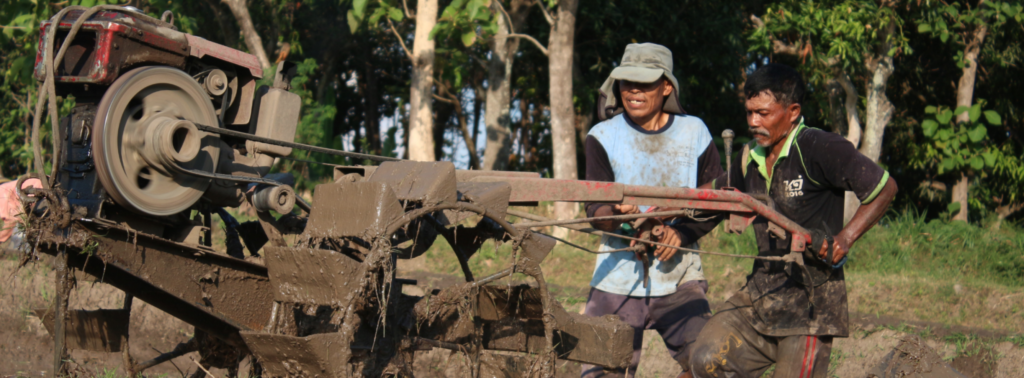
Smallholder farmers in Nigeria still operate within an obsolete and backward agricultural system commonly known as subsistence farming: making use of crude implements such as hoes, cutlass, and animals despite the growing demand for increase in food production
The procedures and implements used in the farming system largely determine the progression level of that system. There has been a push for advanced mechanization in the Nigerian farming system. Smallholder farmers in Nigeria still operate within an obsolete and backward agricultural system commonly known as subsistence farming: making use of crude implements such as hoes, cutlass, and animals despite the growing demand for increase in food production.
The first implementation plan towards mechanization was introduced shortly after Nigeria had her independence. Since then, the public sector has been in pursuit of increasing the number of tractors available. The inability of the government to meet the demands for mechanization discourages farmers from accessing better agricultural engagements, which has caused the agricultural sector to grow slowly.
With Mechanisation, farmers can get a large portion of their farm work done within a short period of time, thereby increasing the possibility of large food production. For instance, farmers with functional tractors can plow a large piece of land in hours, while farmers who rely on animal farm power will take days to complete the same task. A tractor will do in a day what animal farm power will take weeks to complete.
The socio-economic implications of mechanization to farmers cannot be overemphasised. Farmers with machinery and adequate capacities are more likely to transect from subsistence to commercial farming thereby increasing the income of farmers and a better living standard for their family.
Mechanization aids in all farming activities, from cultivation to post-harvesting activities. Through mechanisation, farmers have an improved means of storage, thereby preserving commodity value. Also mechanisation has the tendency to maintain soil fertility and land productivity, hence an environmental effect.
Tractrac is filling in the void of inadequate mechanisation to small holder farmers. These farmers lack the financial resources to access the scarce mechanization services available in the country. TracTrac makes it easier for farmers to access the tractors they need just at the right time and ensures they are fully functional and operational. Are you in need of a tractor? Get one here

One Response